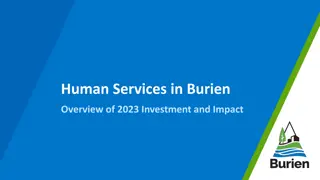
Implementing Biblical Economic Principles for Transformation in Europe
Explore the Biblical Economic Model presented by Dr. Michael Schluter CBE in 2014, focusing on structural assumptions, property and family principles, capital rules and implications, welfare concepts, and more. Discover how incorporating these teachings can lead to practical economic transformations.
Download Presentation

Please find below an Image/Link to download the presentation.
The content on the website is provided AS IS for your information and personal use only. It may not be sold, licensed, or shared on other websites without obtaining consent from the author. If you encounter any issues during the download, it is possible that the publisher has removed the file from their server.
You are allowed to download the files provided on this website for personal or commercial use, subject to the condition that they are used lawfully. All files are the property of their respective owners.
The content on the website is provided AS IS for your information and personal use only. It may not be sold, licensed, or shared on other websites without obtaining consent from the author.
E N D
Presentation Transcript
Transforming Europes Economy: from Biblical teaching to practical implementation in 2014 Dr Michael Schluter CBE
B. What is the Biblical Economic Model? 1. Structural assumptions 2. Property and Family 3. Capital: what are the rules? 4. Capital: the implications 5. Welfare
Structural Assumptions Relational Markets Relational Poverty Relational Government Relational Money
Property and Family Principles of the Old Testament Jubilee Roots Proximity Equity Freedom for debtors and bonded workers
Capital: what are the rules? A ban on interest (e.g. Deuteronomy 23:19-20) Every 7thyear, cancel all debts (Deuteronomy 15: 1-6) Why?
Capital: the implications No absentee landlords
Capital: the implications No reward without responsibility, no investment without involvement, no profit without participation
Capital: the implications No lasting indebtedness Reduced labour mobility No capital supply chain Listed Companies in which the capital provider s capital is invested Capital Provider (individual whose capital is to be invested) Independent Financial Adviser or Bank or other adviser Fund Manager (manages investments in companies) Different funds (separately managed)
Welfare Shared weekly rest day Family and Community responsibility Government role: motivate, empower, support





















